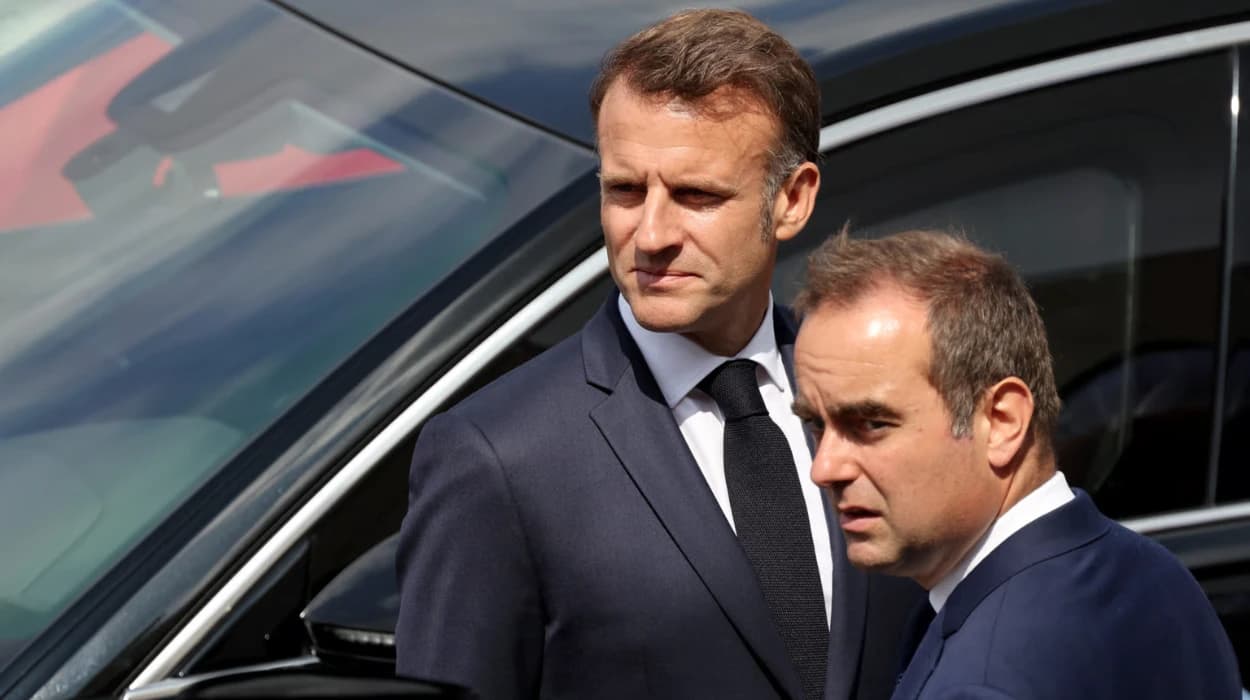President Emmanuel Macron accepted Prime Minister Sébastien
Lecornu’s resignation after just 27 days, deepening France’s political crisis.
By evening, Macron had made a dramatic U-turn and assigned
Lecornu to lead negotiations with the opposition to find a solution to a crisis
that is causing the euro and French markets to tremble. Lecornu, who was
already his fifth prime minister since his reelection in 2022, was given one
last chance by the French president to create "a platform of action and
stability" by Wednesday night.
After an eventful day in which the French president himself made no public statements but was seen pacing by himself along the banks of the Seine, cutting a solitary figure, and perhaps considering the future of France, he announced his decision.His discussions ultimately produced a lackluster result that seemed doomed from the beginning.
“Let’s move on. They are just trying to buy time, it’s ridiculous, it’s melodrama. Let’s stop this,”
said Green lawmaker Sandrine Rousseau.
“Trust is broken,”
said Agnès Evren, a senator and spokesperson for the conservative Les Républicains, a party that had been part of Lecornu’s government.
Never before has the French president appeared so isolated and so embattled, with no good card to play. And rarely have the stakes been so high for France’s economy and the European Union’s. Without billions of euros of budget cuts that France’s politicians seem unable to make, there is a risk international markets will twist their knives into the EU’s No. 2 economy.
Even his own supporters doubt he can avoid early elections that would leave him even more weakened than he is now.
“He has played his last card”
with Lecornu, said a former French official who was granted anonymity to speak candidly. After both the governments of EU veteran Michel Barnier and top ally François Bayrou were toppled over the past 12 months, Macron appointed Lecornu as “the most loyal of the loyalists,” said the official.
He cannot now appoint a Macron-compatible successor with a lower profile.
Retailleau and Les Républicains were offended by Lecornu's appointment of former Economy Minister Bruno Le Maire to his cabinet, which was seen as allowing the debt spiral to get out of control.
Le Maire threw himself on his sword and said during Monday's disaster that he would not be going back to government, thus creating a window of opportunity for talks with the conservatives.
Retailleau's team hasn't ruled out returning to the government just yet, but at this stage, they'll probably ask for more than just Le Maire's head in return.
As the last of his supporters turn against the "Jupiter," who formerly held sway over French politics, the day of reckoning for the French president seems to be drawing nigh.
What constitutional steps follow a prime minister's resignation in France?
Until a new Prime Minister has been appointed and a new
government is in place, the outgoing Prime Minister and ministers continue to
manage day-to-day administration as a caretaker government. They may only
perform politically neutral actions and cannot pursue significant new policies,
political decisions, or reform. They are allowed to respond urgently to the
public good in crisis situations such as public health emergencies or
terrorism.
The President will appoint a new Prime Minister who has the confidence of the National Assembly or the working majority to form a government.
The newly appointed Prime Minister is then able to recommend members for the government and the President formally appoints them.
